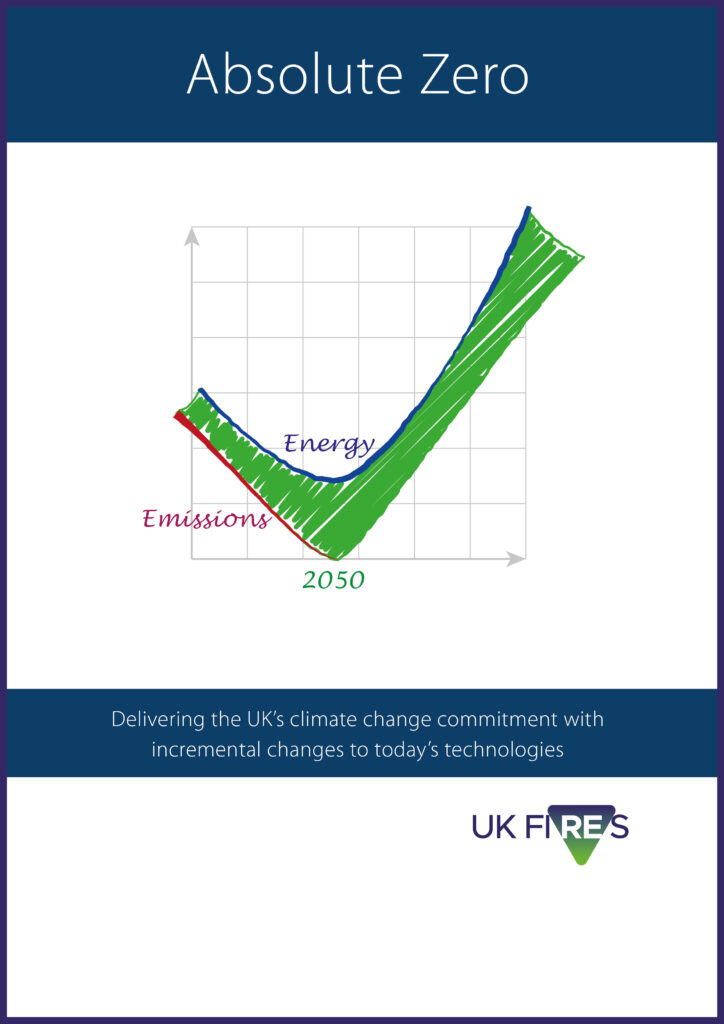
The most downloaded report of 2022 / 2023 from the University of Cambridge, Absolute Zero is an overview of climate mitigation. For twenty years we’ve been trying to solve the problem with new or breakthrough technologies that supply energy and allow industry to keep growing, so we don’t have to change our lifestyles. But although some exciting new technology options are being developed, it will take a long time to deploy them, and they won’t be operating at scale within thirty years. Read more
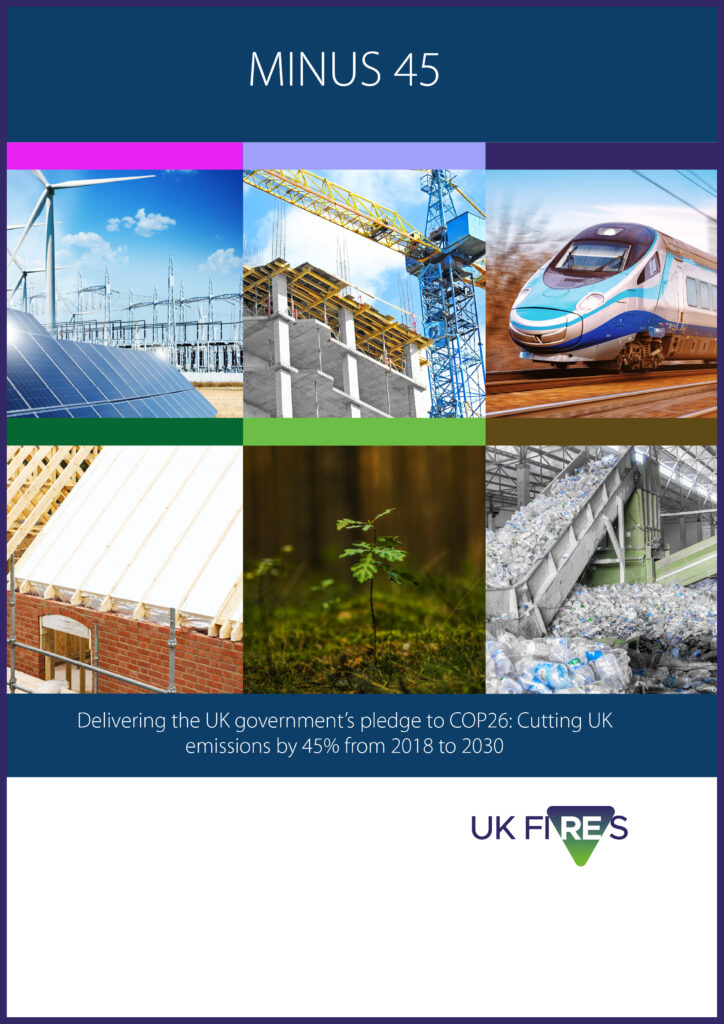
Ahead of COP26, the UK Government has submitted its Nationally Determined Contribution to global climate mitigation which requires a 45% reduction in UK emissions from 2018 to 2030. Even if all planned new generation is delivered on time, the government’s pledge can only be met with significant restraint across all sectors. Read more
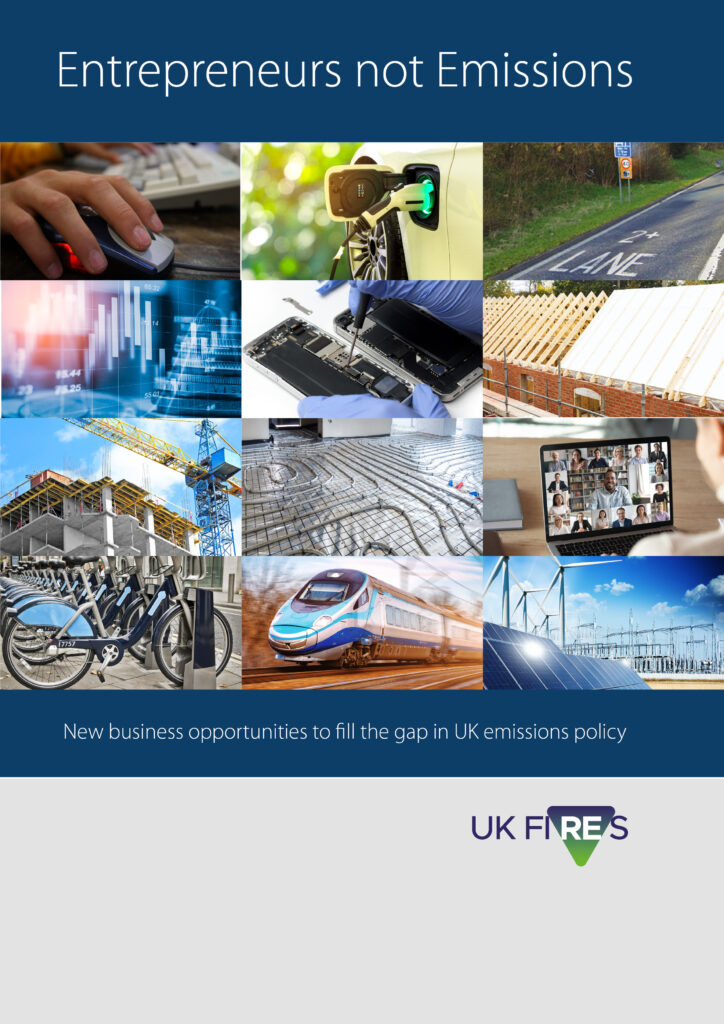
The gap between the UK’s emissions-reduction targets and its delivery policies creates a vast and largely unexplored space for entrepreneurship and business growth. Reaching zero emissions within one generation depends on electrification, but we won’t have as much non-emitting electricity as we’d like. Without action, this means national energy poverty – but with foresight, now entrepreneurs can profit from the businesses that will give us great lives with less energy. This report reveals the breadth of this untapped opportunity for entrepreneurs. Read more
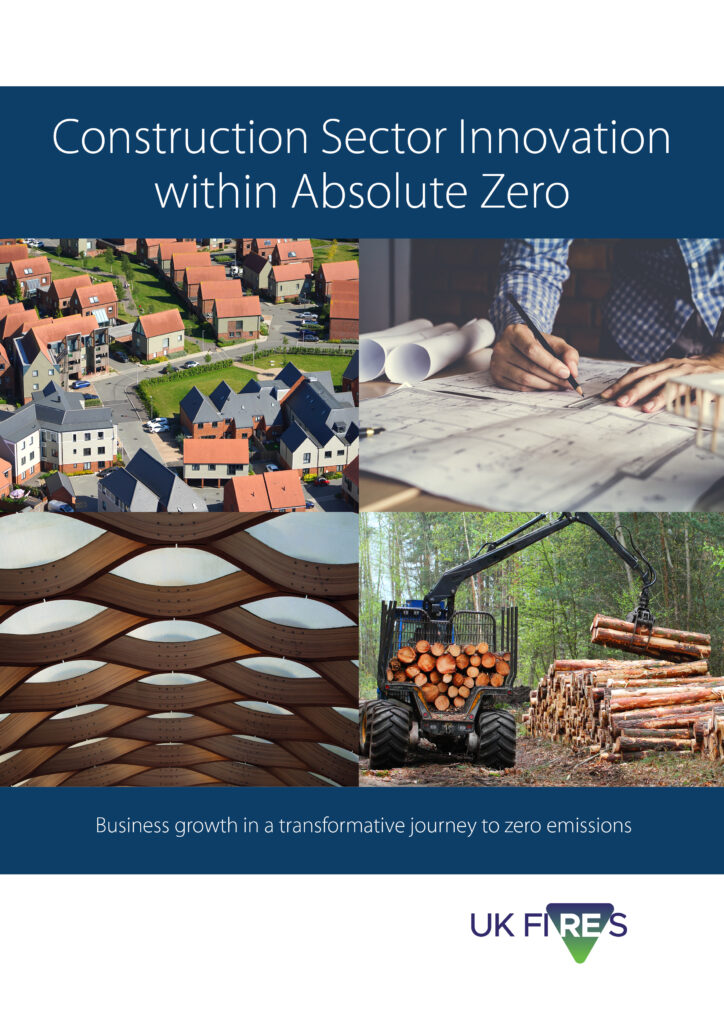
This report describes the innovation opportunities created by a transition to zero emission construction. It is split into four themes which consider the full construction supply chain, starting by Expanding the zero-emission resource pool (Theme 1) to create a decarbonised material supply, then considering the implications for downstream Building elements (Theme 2), the role of Project design (Theme 3), and changes to Planning and demand (Theme 4) which will together drive the scale of change needed for a zero carbon transition. Read more
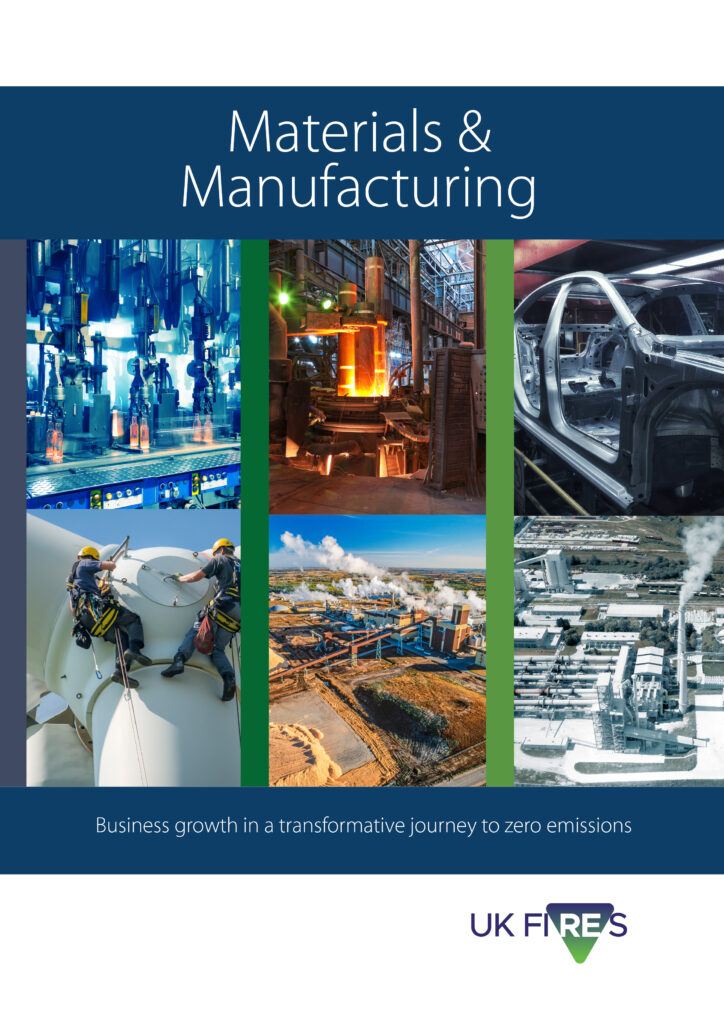
Facing the reality that new energy-sector technologies won’t solve climate change fast enough reveals rich opportunities for innovation and growth in UK materials and manufacturing sectors. Read more
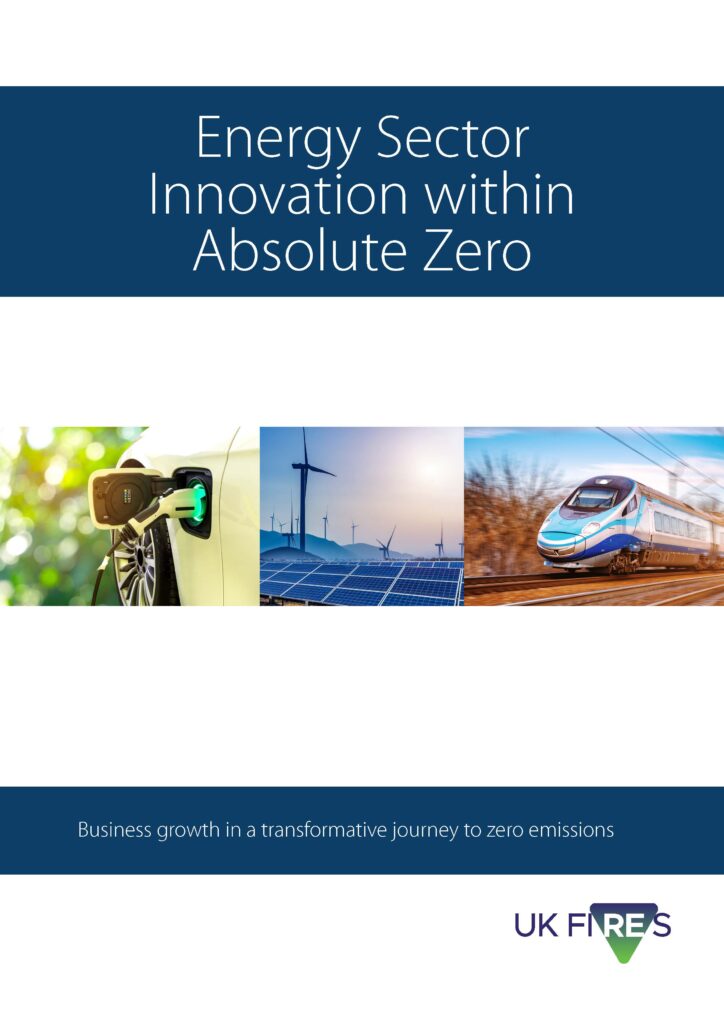
Since 2010, the UK’s non-emitting electricity supply has doubled, and with current commitments, the same linear rate of expansion is likely to continue to 2030 and beyond. This growth will be sufficient to replace all today’s gas-powered generation, but will not be enough to meet future demand. As transport, space-heating and industrial processes are electrified, demand for emissions-free electricity will soon outstrip supply, and by 2050 we will have around 60% of what we would otherwise want.
This report reveals four substantial business growth opportunities created by this likely shortage. Read more
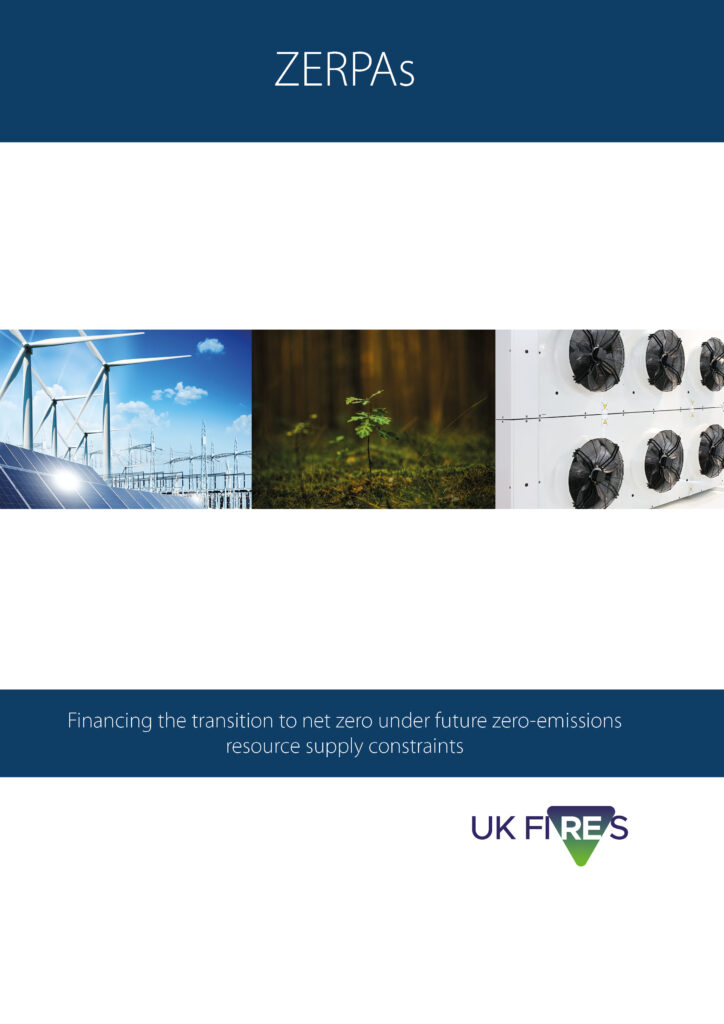
In the rapid transition to net zero, demand is likely to exceed supply for three zero-emissions resources: non-emitting electricity, biomass and negative emissions. ZERPAs are a new financial instrument that allow capital markets to anticipate this shortage, evaluate risks and redirect capital in response. Read more
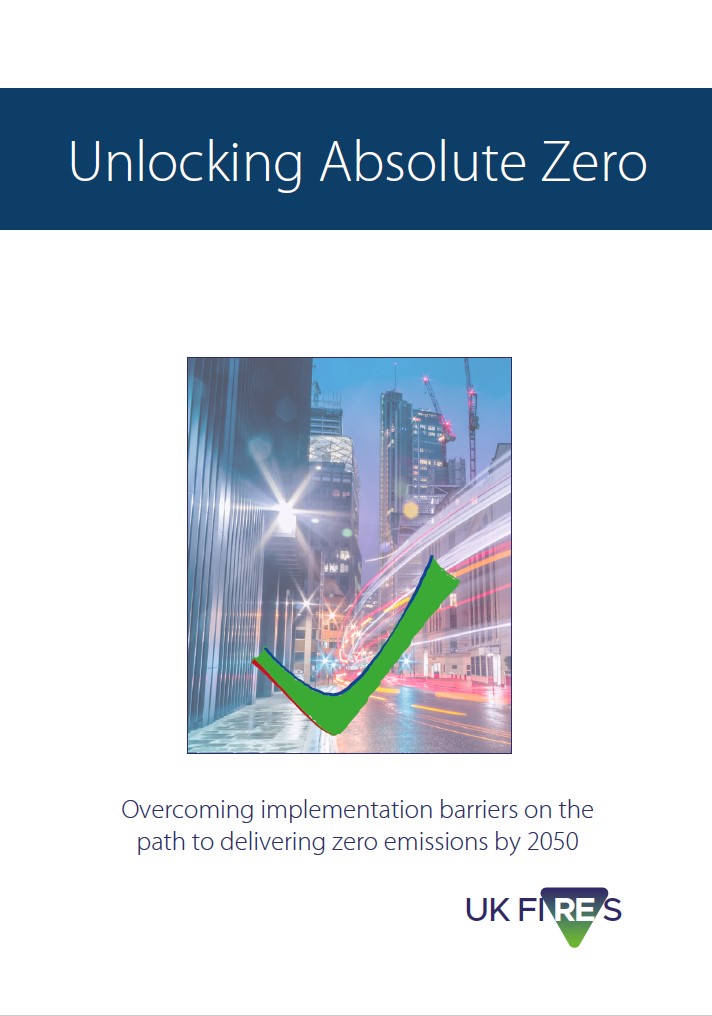
Reaching the UK government’s legally binding commitment of net zero carbon requires unprecedented change in society and industry. In its latest technical report, UK FIRES examines the process of industry-wide change and the sources of lock-in that inhibit change. We present a simple model for lock-in and apply it to case studies across multiple industries. Read more





